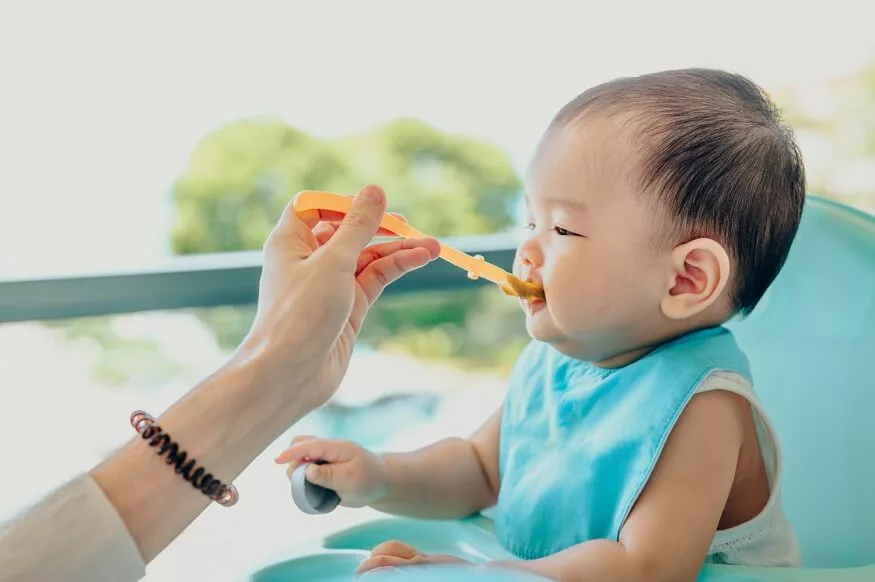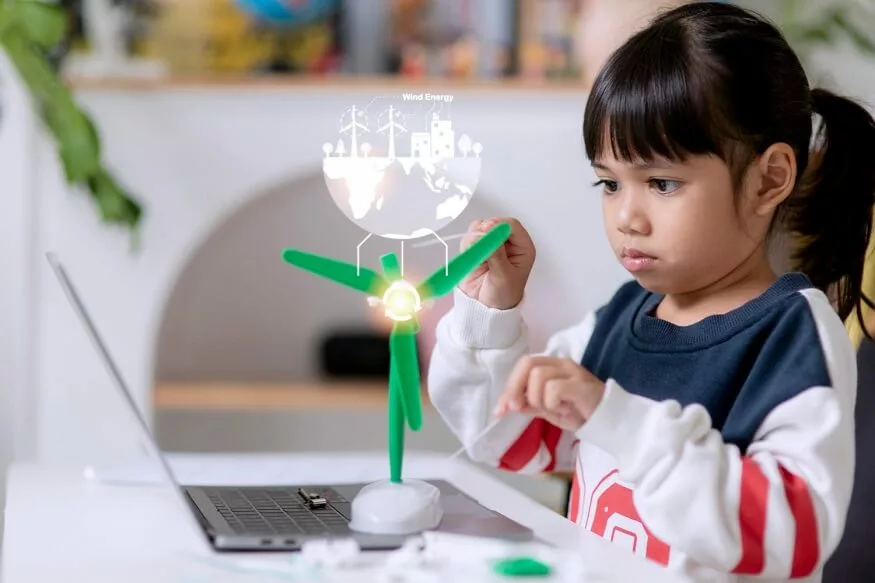Every parent knows the joy and challenges of guiding a toddler through the journey of discovering food. Among the essential skills they acquire, the ability to chew food properly is a cornerstone for healthy eating habits and overall development. In this article, we delve into the importance of teaching toddlers to chew their food effectively and offer practical methods to make this learning process an enjoyable part of their culinary adventure.
Importance Of Chewing Food
Before delving into the methods, it’s essential to understand the significance of encouraging toddlers to chew their food. Chewing is the first step in the digestive process, breaking down food into smaller particles that are easier to swallow and digest. Proper chewing also helps release nutrients from the food, making them more accessible for absorption in the body. Additionally, it promotes oral health by stimulating saliva production, which contains enzymes that initiate digestion. Let’s understand why teaching toddlers to chew their food is a crucial aspect of their development.
- Digestive Health: Proper chewing initiates the digestive process. Well-chewed food is easier for the stomach to break down, aiding in nutrient absorption and reducing the risk of digestive issues.
- Oral Motor Skills: Chewing contributes to the development of oral motor skills. The coordinated movements involved in chewing help strengthen the jaw, tongue, and facial muscles, laying the foundation for speech development.
- Nutrient Absorption: Thoroughly chewed food allows for better nutrient absorption. When food is broken down into smaller particles, the body can extract nutrients more efficiently, supporting the toddler’s growth and development.
- Independence and Confidence: Mastering the art of chewing empowers toddlers to feed themselves independently. This newfound skill boosts their confidence and fosters a positive attitude towards mealtimes.
Simple Methods To Encourage Your Toddler To Chew Food
Explore effective ways to encourage your toddler to develop proper chewing habits. These simple methods promote healthy eating and development.
1. Lead by Example
Toddlers are keen observers, and they often mimic the behaviour of adults around them. Make mealtime a family affair and demonstrate the art of chewing by doing it yourself. This not only sets a positive example but also creates a conducive environment for your toddler to learn.
2. Create a Relaxing Mealtime Environment
Eliminate distractions during meals, such as television or electronic devices. Creating a calm and focused atmosphere allows your toddler to concentrate on the eating process, making it easier for them to chew their food properly.
3. Offer Easy-to-Chew Foods
Introduce a variety of foods that are easy for your toddler to chew. Opt for softer fruits, well-cooked vegetables, and finely chopped or mashed meats. Gradually progress to more textured foods as your toddler becomes more comfortable with chewing.
4. Texture Exploration
Encourage tactile exploration by presenting foods with different textures. This not only stimulates their senses but also helps them develop the necessary oral motor skills for effective chewing. Offer a mix of crunchy, chewy, and soft textures.
5. Involve Your Toddler in Food Preparation
Engage your toddler in the kitchen and involve them in age-appropriate food preparation activities. This hands-on experience can make them more curious about the food they eat, fostering a positive attitude towards chewing.
Also Read: The Importance of Breakfast: How the first meal impacts learning and energy levels
6. Use Positive Reinforcement
Praise your toddler when they chew their food well. Positive reinforcement, such as verbal encouragement or a small reward, reinforces good behaviour and makes the chewing process a positive experience.
7. Establish a Routine
Consistency is key when teaching toddlers new habits. Establish a regular mealtime routine, creating a sense of predictability for your toddler. Routine helps them understand what to expect, making it easier for them to focus on chewing.
8. Make Meals Enjoyable
Incorporate fun elements into mealtime, such as colourful plates, interesting utensils, or playful conversation. Making meals enjoyable can turn chewing into a delightful experience, encouraging your toddler to take their time with each bite.
9. Encourage Slow Eating
Teach your toddler to eat slowly by emphasizing the importance of savouring each bite. Discussing the flavours and textures of different foods can help create a mindful eating habit.
10. Provide Age-Appropriate Utensils
Invest in utensils designed for toddlers, which are easy for little hands to grasp. Using age-appropriate cutlery can empower your toddler to feed themselves and, in turn, focus on chewing.
Also Read: How To Get Toddlers to Learn to Accept New Foods?
11. Monitor Portion Sizes
Be mindful of portion sizes, ensuring they are appropriate for your toddler’s age and chewing abilities. Smaller, manageable portions make it easier for toddlers to chew and swallow without feeling overwhelmed.
12. Introduce Drinking Habits
Teach your toddler to take sips of water between bites. Proper hydration aids the chewing process and ensures that the food is well-moistened before swallowing.
13. Educate Through Stories
Utilise storytelling to explain the benefits of chewing food. Create imaginative tales about little creatures in the stomach that rely on well-chewed food to extract its magical nutrients. This can make the learning process both educational and entertaining.
14. Celebrate Achievements
Celebrate milestones in your toddler’s chewing journey. Whether it’s successfully chewing a crunchy vegetable or finishing a meal without assistance, acknowledging their achievements builds their confidence and reinforces positive behaviour.
15. Be Patient and Understanding
Understand that learning to chew is a developmental process. Some toddlers may take longer to grasp this skill than others. Be patient, offer support, and avoid putting undue pressure on your child.
16. Consult with a Paediatrician
If you have concerns about your toddler’s chewing habits or if they consistently struggle with certain textures, consider consulting with a paediatrician. A professional opinion can help rule out any underlying issues and provide tailored guidance.
Also Read: Food Allergies in Children: Identification, management, and potential long-term impacts.
17. Facilitate Peer Interaction
Arrange playdates or mealtime gatherings with other toddlers. Peer interaction can positively influence your toddler’s behaviour, and they may be more inclined to emulate the chewing habits of their friends.
18. Introduce Finger Foods
Finger foods are not only fun for toddlers but also encourage them to use their fingers to pick up and explore different textures. This tactile experience promotes fine motor skills and supports the development of chewing abilities.
19. Regular Dental Check-ups
Ensure your toddler’s oral health by scheduling regular dental check-ups. A healthy mouth contributes to effective chewing, and early detection of any dental issues can prevent potential barriers to proper chewing.
20. Model Healthy Eating Habits
Beyond chewing, instil a broader sense of healthy eating by modelling balanced food choices. Your toddler is more likely to adopt a nutritious diet when they see you enjoying a variety of foods and making mindful choices.
Also Read: Practical Strategies to Kick the Habit of Food Throwing
For more blogs on babies, infants, toddlers and child development, read EuroSchool.










